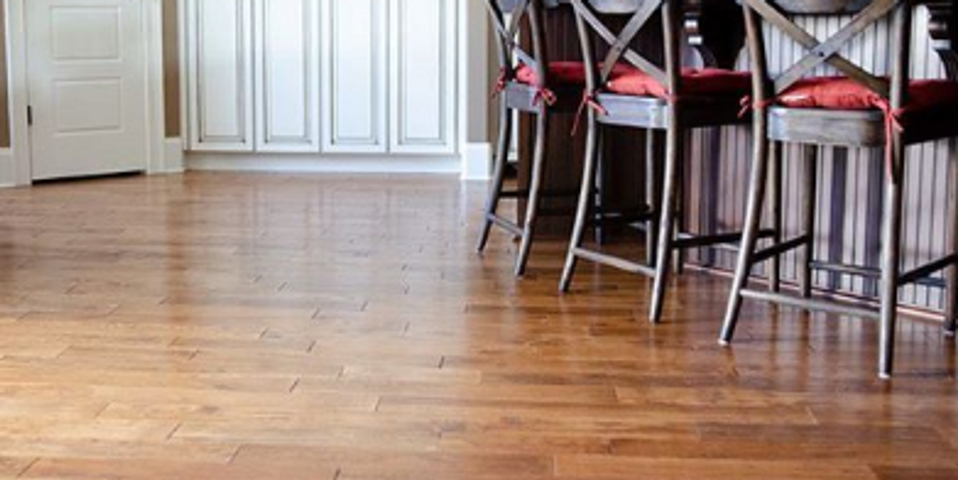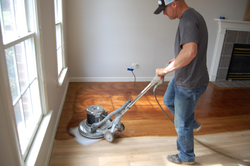
Wood is a naturally water-absorbent material, as trees collect water to live, transporting it through their trunks and branches. Hardwood floors still contain all the structures and pathways that make that process happen. Thus, the humidity in your home has a noticeable effect on hardwood flooring. Here’s what you need to know about humidity and your flooring.
How Humidity Affects Your Floors
When your home is dry, below 40% humidity, the water will seep out of the floorboards and make them contract. As they shrink, their edges pull apart, creating narrow cracks throughout your floor. On the other hand, if the home is humid, over 60%, the boards expand, and the edges press against one another, forcing them upward to form a shallow cup shape that will trap liquid. With even more moisture, the floor can buckle and pull away from the subfloor.
What You Can Do
 Keeping the home humid, especially in winter when the air is naturally drier, prevents cracks in the boards of hardwood floors. Measure the humidity to keep it between 40% and 60%.
Keeping the home humid, especially in winter when the air is naturally drier, prevents cracks in the boards of hardwood floors. Measure the humidity to keep it between 40% and 60%.
Add a humidifier if your home tends to get dry. Also, use the air conditioner or furnace more if the home is too damp. Both types of HVAC equipment condense water out of the air and will help dry out the space.
If the humidity is high, add a dehumidifier to the HVAC system. If there's a problem with your boards like shrinkage, swelling, or cupping, wait until it's resolved to perform floor maintenance; sanding the floor too soon can damage the boards and cause them to crown, sticking up further in the middle than at the edges.
For more advice on how to maintain your hardwood floors, contact Carolina Wood Floors in Winston-Salem, NC. Serving Forsyth County, they have over 25 years of experience with a wide range of wood flooring options. They are the largest dealer in the area and offer repair, renovation, and installation services. To get started, visit their website or call (336) 765-0680.
About the Business
Have a question? Ask the experts!
Send your question

